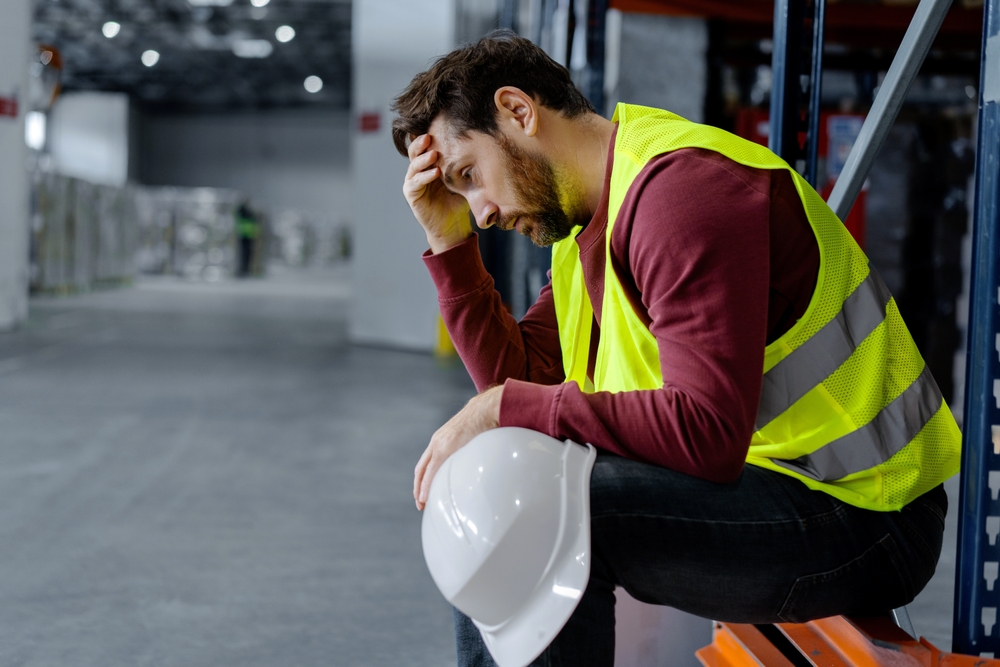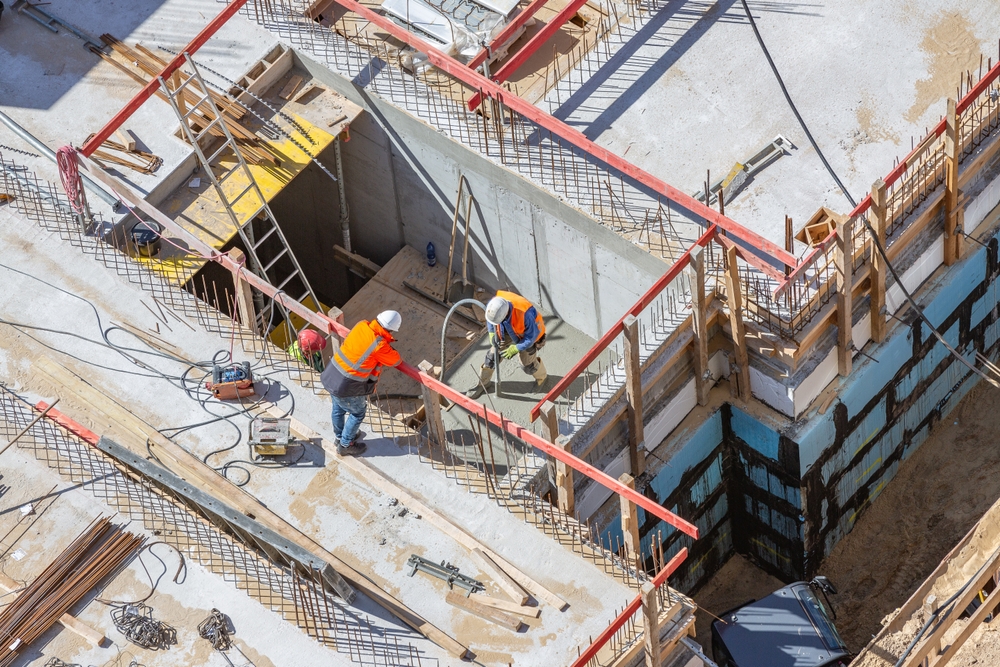We've been doing background checks in the construction industry since before most of our competitors existed.
Over three decades, we've seen every possible hiring mistake, compliance nightmare, and screening challenge you can imagine.
This guide is based on real experience with thousands of construction clients - from one-person electrical contractors to major general contractors managing billion-dollar construction projects.
We work alongside our construction clients every day to make hiring faster and safer (and less stressful). We know how quickly projects move and how important it is to have reliable, job-ready workers ready to go.

The Numbers That Matter
The construction industry employs about 8.3 million people in the U.S., making it one of the largest industries. But here's what's concerning:
- One in five workplace deaths happen on construction sites
- Tool theft averages $6,000+ per incident
- OSHA workplace safety violations can cost $7,000-50,000+ depending on severity
- Project delays cost thousands per day in penalties and lost revenue
The good news? Companies using appropriate screening services see 30-50% fewer workers' comp claims and significantly less theft.
We've tracked this data with our clients for years. The math is pretty clear - spending more on a thorough background check prevents thousands in losses.
Why The Construction Industry Is Different (And Why Generic Screening Doesn't Work)
Most background check companies treat all industries the same. They'll run the same basic criminal records check for an accountant and a crane operator, which makes no sense. Not only is the hiring process different, but construction has unique risks that office work doesn't:
- Someone operating heavy machinery like a $300,000 excavator needs different vetting than someone answering phones
- Project deadlines mean you can't wait two weeks to perform background checks
- State licensing requirements change constantly and vary wildly between jurisdictions
- High turnover means you're always screening new people
"The biggest mistake we see is construction companies using generic screening packages that don't address their actual risks," says Constance Brackett, Chief of Staff at KRESS Employment Screening. "A DUI conviction matters a lot more for someone driving company trucks than someone doing paperwork."
The right background checks also make your life easier! For example, checking for employment gaps can show how reliable someone will be during peak project hours, and verifying licenses upfront can prevent last-minute scrambles when compliance paperwork is due.

What Actually Goes Into Construction Background Screening
Criminal Background Checks - But Be Strategic
Yes, you need criminal background checks, but it's best to focus on what's relevant to your construction work:
High Priority:
- Theft, as tools and materials are easy targets
- Violence, as job sites get stressful, especially near deadlines
- Recent drug charges which suggests current substance issues
- DUI patterns especially if they're driving or operating equipment
Lower Priority:
- Old marijuana possession charges
- Non-violent offenses from 10+ years ago
- Traffic violations unrelated to substance abuse
We run county-level searches because state databases often lag behind by months. We can't tell you how many times we've caught recent charges that didn't show up in statewide systems yet.
License Verification
Here's where a lot of construction companies get burned. They assume someone's "certified welder" card means they're actually certified.
Common problems we find:
- Expired licenses (happens more than you'd think)
- Fake or altered certificates
- Training that doesn't match claimed specialties
- OSHA cards that aren't current
As part of our credentialing service, we confirm with the actual licensing boards. Yes, it takes time, but it's worth it when you discover someone's crane license expired two years ago.
Employment Verification
Construction resumes often stretch the truth. "Crew chief" might mean they supervised one other person for a month. "Ten years experience" might include five years as a general laborer.
What we verify with previous employers when it comes to employment history:
- Actual job titles vs. what's claimed
- Size of crews managed
- Specific equipment operated
- Why they left previous jobs
- Any safety incidents or violations
Drug Testing
Drug testing used to be (relatively) straightforward. Now with marijuana legalization, it's complicated.
Some states protect off-duty cannabis use. Others allow zero-tolerance policies. Most fall somewhere in between.
Our approach: focus on impairment rather than just positive tests. Someone who used marijuana legally on Saturday shouldn't automatically be disqualified from working on Tuesday. But someone showing up impaired to what is an inherently hazardous environment on Monday morning is a problem.
Motor Vehicle Records
If workers drive company vehicles or operate mobile equipment, you'll need to check their driving records.
Here are a few red flags:
- Multiple DUIs (substance abuse pattern)
- Excessive speeding tickets (risk-taking behavior)
- License suspensions (can't follow rules)
- Driving without insurance (irresponsible)
Insurance companies care about this stuff. Clean driving records can actually reduce your commercial auto premiums.
See all of our background checks for construction employers.

Common Mistakes (That Cost Money)
Using Cheap Online Services
Those $10 background checks are worse than useless. They give false confidence while missing critical information.
We see companies get burned because they used cheap services that only check databases instead of verifying with original sources. An HR manager hiring someone with a falsified license? The embarrassment and liability are real.
Waiting Until You Need Someone (For a Contract)
Don't start screening when you need someone tomorrow. Build pools of pre-screened workers so you can hire quickly. Not only that, but bringing people in when you're in a rush without proper checks can leave you exposed. We've seen cases where rushed hires led to theft or delays that could’ve been avoided with better planning.
Inconsistent Application
Screen similar positions the same way. If equipment operators need MVR checks, all equipment operators need MVR checks. Inconsistency creates discrimination liability.
Ignoring Red Flags
That gut feeling when something doesn't add up? Listen to it. If someone's evasive about work history or references, there's usually a reason.
We help you prevent those bad hires before they ever step foot on the jobsite. Our team works with construction companies every day to flag gaps, verify work history, and make sure you're not left guessing. When timelines are tight, you need confidence that the people you bring in will show up, stay safe, and get the job done right.
Technology That Actually Helps
Construction workers aren't sitting at computers, so screening platforms need to work on phones.
What works:
- Processes that allow people to access background checks
- Mobile apps for on-site screening initiation
- Photo upload for licenses and documents
- Confirming a candidate's identity quickly using biometrics - learn more about Global ID
- Electronic signatures (no printing/scanning)
What doesn't:
- Platforms that claim to be "mobile-friendly" but aren't
- Complex systems that confuse older workers
- Applications that require constant internet (job sites have spotty coverage)

Independent Contractors - Special Challenges
You can't force contractors to get background checks, but you can make it a requirement for working on your projects.
Include screening requirements in contractor agreements. If they refuse, you can choose not to work with them.
Some contractors push back on background checks. Our response: if you won't verify your workers are qualified and trustworthy, we don't want you on the project.
The Bottom Line
Construction background screening protects your business from preventable problems. Every contractor has stories about bad hires that cost money, time, or their company's reputation.
The smart ones learn and implement proper screening. The ones who keep cutting corners keep dealing with the same problems.
We know it's not exciting, but it's necessary. Find a screening company that understands construction, develop policies that work for your business, and apply them consistently.
Don't hire someone just because you're desperate. Desperate hiring leads to expensive mistakes.
Want to protect your projects and build reliable teams? Start with hiring people you can trust.
KRESS has been helping construction companies with this for 30 years. We understand the challenges because we've seen them all before.

FAQs
How long do construction background checks take?
Comprehensive screening usually takes 2-3 business days, although at KRESS we perform 98% of all background checks within 24hours. Rush options available but cost more. Plan ahead when possible.
Do I have to screen independent contractors?
Legally, no. Practically, yes if you want consistent site safety. We recommend you include requirements in contractor agreements. Read more about background checks for freelancers.
What if someone fails a background check?
Follow FCRA procedures - give them notice and chance to dispute before making final decision. Document everything. Read our guide on how to tell someone they've failed a background check.
Can I screen current employees?
Yes, but check state laws first. Some require consent or limit when you can do it. Read our guide on screening current employees or learn more about continuous monitoring.
What about marijuana legalization?
Laws vary by state and keep changing. Focus on impairment rather than just positive tests. Get legal advice for your specific situation.









